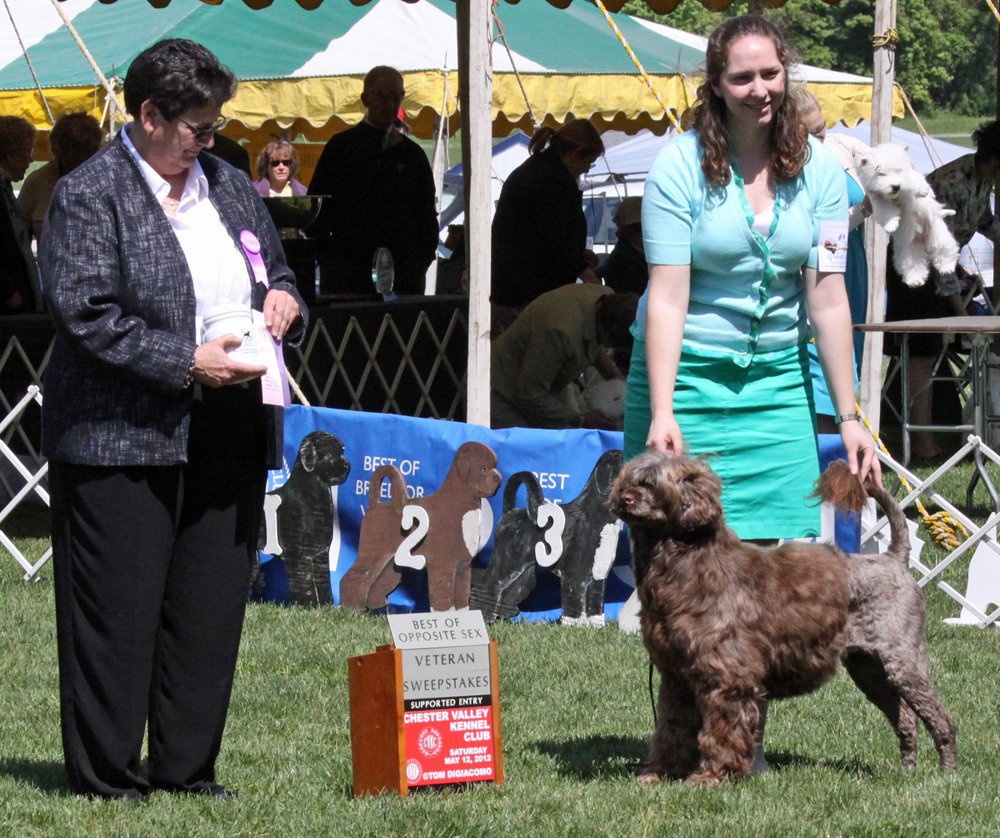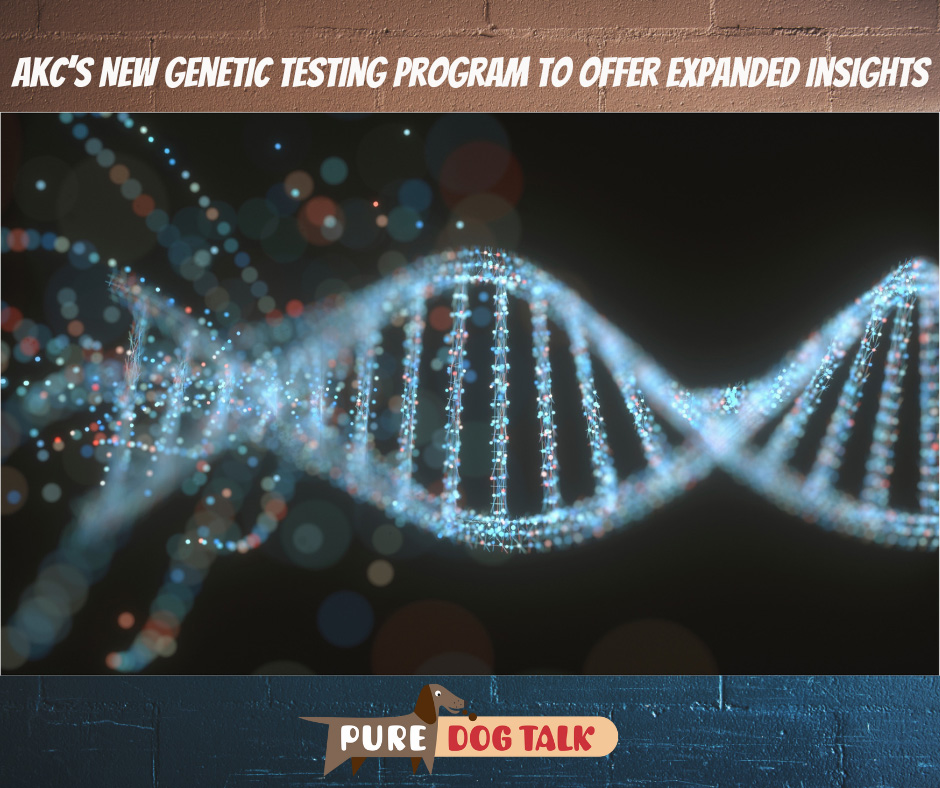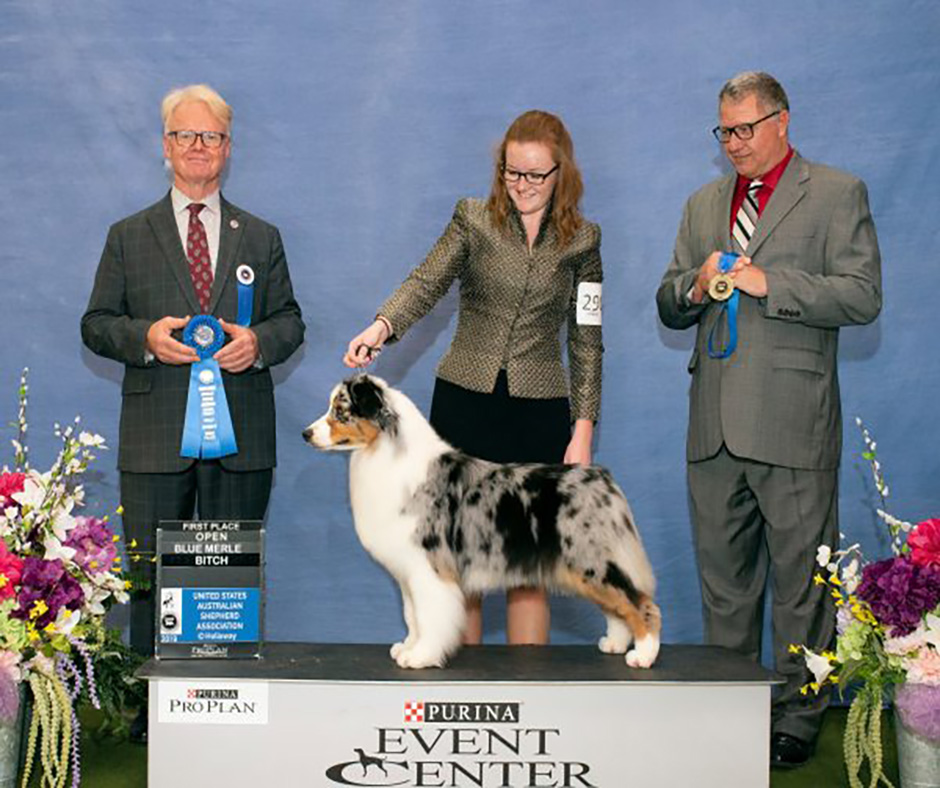659 – When Sh*t Happens in Your Breeding Program
When Sh*t Happens in Your Breeding Program
Host Laura Reeves is joined by Aimée Llewellyn-Zaidi, Project Director, IPFD Harmonization of Genetic Testing for Dogs, International Partnership for Dogs, for part two of a challenging and informative conversation about when sh*t happens in your breeding program.
“If you have a stud dog,” Llewellyn-Zaidi said, “and I’m gonna use stud dogs because that’s what tends to be the bigger contributor to a genetic breeding plan. If you have a stud dog or you’re using a stud dog or you’ve used a stud dog and there is a problem. Step number one is to not panic. Genuinely, that’s the first kind of step, because you will know in yourself that you’ve made the best decisions in that moment with the information you had up until that point.
“You now have maybe new information. So then the second step is investigate and you gave some great examples. Is this something that is heritable? Is this something that isn’t in the breed, but maybe actually is in the breed? And if you start asking, you start realizing that you’re not the only one that has been observing this challenge.
“So just do a little bit of investigating, get a diagnosis for when there isn’t a genetic test. Do a little asking around with friendly people to see if this is something that it is heritable or potentially heritable, and then if it’s something that is kind of unique to your lines or if there’s potentially a broader breed conversation.
“I keep wanting to throw traits because very understandably we focus on poor health, but actually many, many breeders want to be focused on the characteristics that are valuable and important.
“The more we’re able to think about our individual breeding plans as part of a whole, the term collective action, I think the more successful we will be at meeting our goals and reducing the risks of inherited diseases.
“Whether you’re in a healthy breed that has no breed specific health conditions but being a dog means you’re going to have a health condition. Or whether you’re in a breed that has maybe a different path that they need to take to get back to where people feel there’s a better balance between health and the traits that they want, collective action is key.
“And that’s the thing. It’s like the collective action on your individual part is are you communicating with your puppy owners? Are you communicating with the bitch owners if you have the stud but don’t keep the bitches. Who are your breeding friends that you’ve used your stud dog to. Are you keeping those accurate records? Are you including a friendly vet into your system that can kind of help you with identifying or investigating any of these health issues?
“In summation, we’re not gonna panic, we’re gonna investigate, we’re gonna maybe pause breeding and we’re going to think about the steps that we need to take to have those collective action solutions, that’s going to include you and your breeding plans and your breeding partners.”
FPEn291cE5TKEepi1hJv
568 – AKC’s New Genetic Testing Program to Offer Expanded Insights
AKC’s New Genetic Testing Program to Offer Expanded Insights

Dr. Claire Wiley, VMD and her Portugese Water Dog.
Dr. Claire Wiley, Executive Director of the AKC DNA Program, joins host Laura Reeves with breaking news about the expansion of their testing capabilities.
AKC’s DNA program will soon include the option to identify traits and genetic diseases, in addition to simple parentage, Wiley announced.
“For the past 25 years, the AKC DNA program has really focused on protecting the registry,” Wiley noted. “And they did that using unique identification, kind of like fingerprints and also using those fingerprints to verify parentage. It had more of a regulatory role to it.
“A couple years ago, the AKC developed an ad hoc genetics committee. They listened to the breeders (who) were really interested in having more from the DNA program. And that’s kind of why I got hired, because we’ve listened to the feedback and are trying to bring things into the future to really serve our most important constituents, the breeder.”
Wiley, a second-generation Portugese Water Dog breeder, is a board certified veterinary specialist in Small Animal Internal Medicine. Her passion for genetic health testing started early in life after losing two PWD puppies to juvenile dilated cardiomyopathy. She later worked on the breakthrough studies to identify the genetic marker for protein losing nephropathy in Soft Coated Wheaten Terriers.
“I’m a breeder. I lived through it from the very beginning and now I’m back here to help bring the DNA program into the future,” Wiley said. “At AKC, we try to focus on all dog owners, but it all starts with the breeders who are producing the healthy dogs for all dog owners.
“The fundamental process will essentially be the same where you use a cheek swab to collect DNA and you go online to activate it. When you first go in to buy the swabs, there will be two products. The original parentage product will be called the AKC Original DNA profile and then the one that includes health tests and traits will be called the AKC Signature DNA profile.
“So when you’re actually on what we call our shop page where you’re buying the swabs, you have an option of choosing either just the Original profile, which is the $50 kit that provides parentage, or you can choose the option that still includes that $50 original profile, but also has health and traits available.
“We’re really hoping to launch this by mid 2023 at the latest, hopefully April. A lot of these companies say there are over 200 markers that they’re testing for, but if you actually talk to breeders, they’re probably focused on 2, 3, maybe 0 for that specific breed. So, we are taking the experts, you know, the Breeders, and having them tell us what we should be including as important markers for them.
“The parent clubs have what we call parent club health statement letters where they actually say this is what we are concerned about as a breed and as a group, and so we’re using those letters to determine which testing is the most important for that breed.”
Listen to the full episode for more from Dr. Wiley.
308 – Bill Shelton, chapter 3: bottlenecks, marketing, adaptability
Bill Shelton, chapter 3: Genetic bottlenecks, marketing, adaptability
Renowned breeder and judge Bill Shelton and host Laura Reeves finish up their wide-ranging conversation on dog breeding and marketing in the 21st century.
“How do we move the bar from healthier to typier to sounder? We have to breed,” Shelton said. “We have to be accountable for what we produce. But we have to breed. And we have to get the message out about how what we’re doing is producing healthier and happier dogs. How our ‘commodity’ is predictable.”
Bottlenecks are something we may all have to deal with at some point, Shelton noted. He references the Dalmation outcross project in which Pointers were incorporated to eliminate a deadly disease. He also talks about the Basenji project, in which native dogs from Africa are incorporated in the gene pool, again to eliminate a heritable disease. Listen to my interview with Damara Bolte on this topic here.
“It’s a heretic idea to many people, but it’s going to be something we all have to do at some point, because our dogs exist in closed gene pools,” Shelton said. “It goes back to the weaving of genes. You don’t eliminate bad genes, you introduce new good genes.”
Additional resources:
https://puredogtalk.com/busting-the-genetic-testing-myths-dr-jerold-bell/
https://puredogtalk.com/77-one-breed-one-world-think-and-breed-global-with-doug-johnson-2/
https://puredogtalk.com/german-pinscher-all-purpose-robust-dog-for-active-owners-pure-dog-talk/
Doodles offer a lesson
“How many people dislike labradoodles. Think back in the ‘70s when there were those dogs called Australian shepherds,” Shelton noted wryly. “People get upset because doodle breeders can sell their cross-bred dogs, when they (show breeders) can hardly sell dogs. Why? Because (show breeders) exist in a vacuum. They don’t advertise, they don’t promote their breeds, they don’t promote themselves, they don’t know how to do it. And then they say how bad AKC marketplace is. We want to show our dogs. But we don’t want to share them or market them.”
No dog left behind
Shelton espoused several outstanding marketing concepts, including making a dog’s microchip number its registration number. The public finds more value in the microchip than the registration number, he said. This plan would enable AKC to sell both more registrations and microchips and promote a campaign of “no dog left behind” because all purebred dogs would be registered and microchipped.
The entire series
If you missed the first two installments of this series, you can find them here and here.



